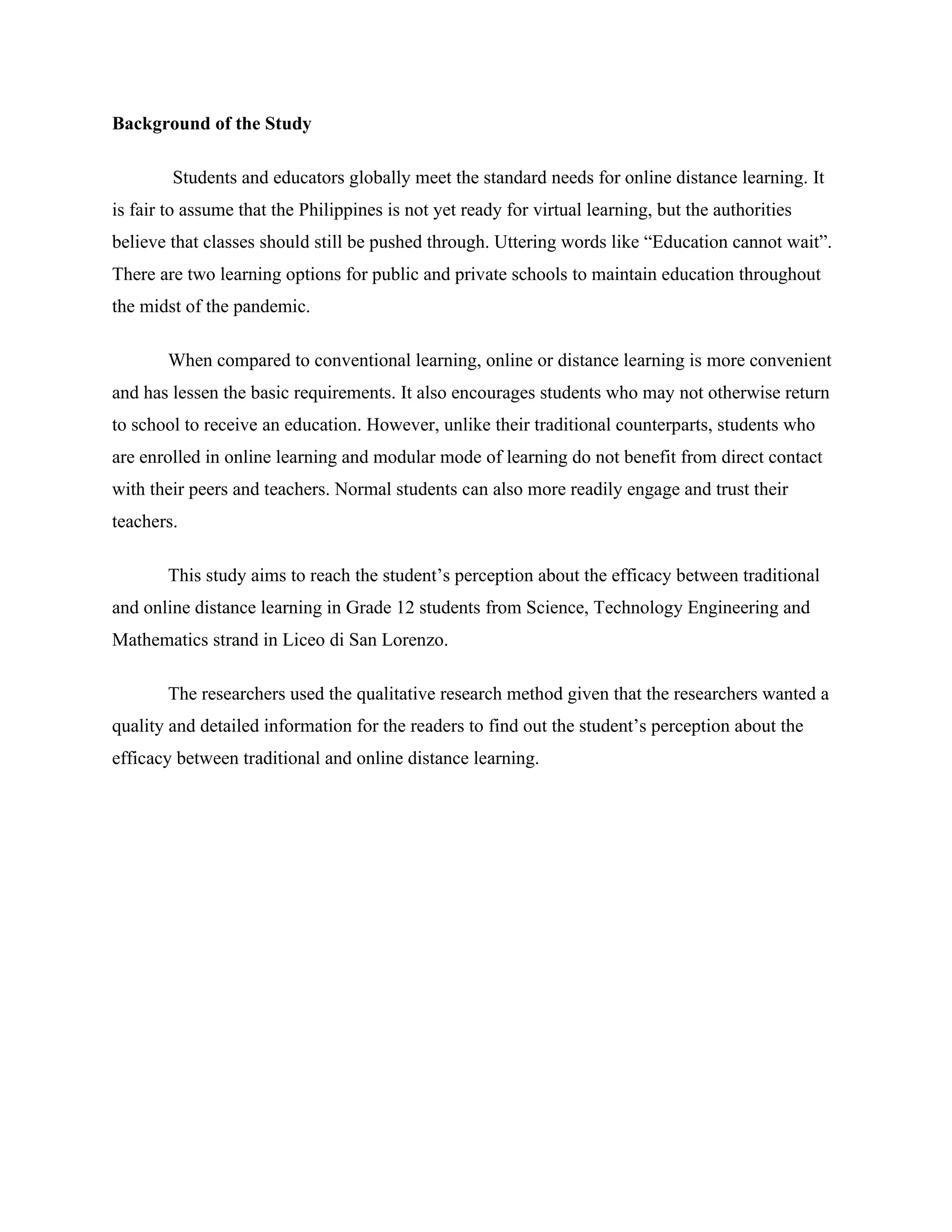This document summarizes a student research paper that examines students' perceptions of the efficacy of online classes compared to traditional in-person classes. The study was conducted among Grade 12 STEM students in the Philippines during the COVID-19 pandemic when classes shifted online. The document provides background on the sudden transition to online learning in the Philippines. It also reviews related literature, which found that most students prefer face-to-face interaction and communication. However, online learning allows greater access to education. The study aims to understand barriers to online learning and factors that enhance its efficiency from the students' perspectives.


















